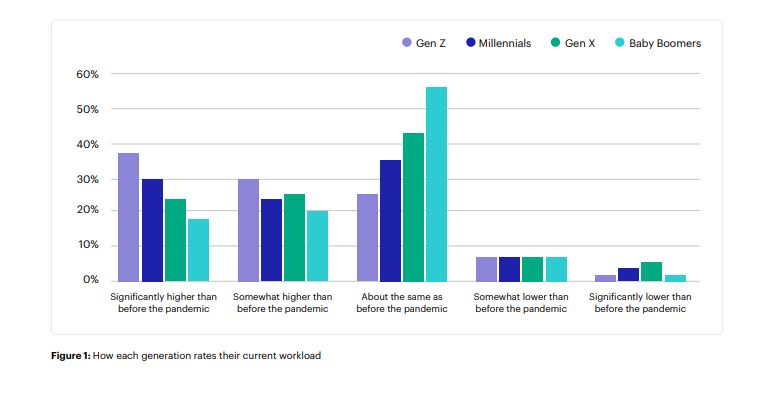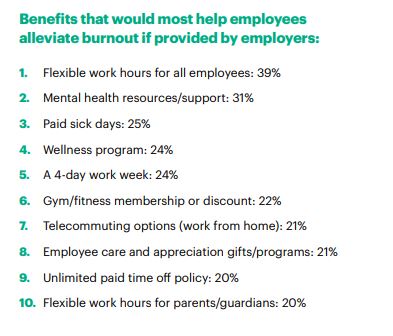Visier: The burnout crisis is creating a retention crisis
How can flexible working help?
Why You Should Care
Burnout is a major cause of the 'Great Resignation'.
But what must companies do to resolve both the burnout and resignation crises?
Visier shares some advice backed up by research.
The ‘Great Resignation’ is real and shows no signs of slowing down. While companies are aware of the trend and the possibility of a retention crisis, there is some confusion about the main causes and the solutions.
Research by people analytics company Visier has found that the US and the UK are grappling with a burnout crisis and this is feeding into the ‘Great Resignation’.
A survey of 2,000 UK employees found that 73% feel more burnout now than before the pandemic. This rises to 80% for 16 to 24-year-olds. This has caused 47% to have trouble sleeping, 46% to feel exhausted and 39% to have negative thoughts.
While 89% of 1,000 US workers told Visier that had experienced burnout. This rose significantly for Gen Z and millennials, as well for women (91%). In addition, 27% of those surveyed felt burnout all the time.

Visier’s US burnout epidemic report.
The number one cause of burnout in the US was an increase in workload. 55% said they had a higher workload since the onset of the pandemic; 28% said the increase was significant.
Toxic workplace culture and being asked to complete work faster than before were also significant causes of workers’ burnout.
Solving the retention crisis
As a result of this burnout, 79% of UK workers and 70% of US employees are considering leaving their current job. In the UK, almost one in four were actively looking for a new job.
Talking about the findings, Visier principal for research and customer value Andrea Derler commented: “Burnout is becoming pervasive in our workplaces and employers need to act now to protect the wellbeing of their people or face the reality of a talent exodus.
“In particular, companies risk losing up and coming junior talent as burnout is becoming a generational issue – felt strongest by the Gen Z and millennial workforce.”
What must companies do to reverse these two crises in retention and burnout?
Both UK and US workers agree that more workplace flexibility would help (38% for the UK, 39% for the US). They also want more wellness programs (32% for the UK, 24% for the US).
UK employees also want more reward and recognition at work (41%), while US employees want more employee appreciation programs (21%).

Visier’s US burnout epidemic report.
It is clear that employers need to be proactive with this support as many employees do not feel comfortable talking to their managers about their feelings of exhaustion and burnout.
37% of the US workers surveyed were not comfortable talking to their manager about their burnout – this increases to 53% for women.
Derler continued: “Though time off work is an important way to recharge, it isn’t enough to alleviate chronic burnout.
“Leaders must understand how their people are feeling and engage employees in conversations about burnout using workplace tools to gauge their stress levels.
“Managers can then work with direct reports to alleviate work-related fatigue and provide crucial support. Only by identifying these feelings earlier on is it possible to act in time before the burnout crisis leads to voluntary turnover”.
Ultimately, Visier’s US report concluded that “alleviating burnout isn’t just good for your people, it’s good for your business.”
Remember, happy, valued employees are productive employees who are likely to stay at your company.
Sign up to the UNLEASH Newsletter
Get the Editor’s picks of the week delivered straight to your inbox!

Chief Reporter
Allie is an award-winning business journalist and can be reached at alexandra@unleash.ai.
